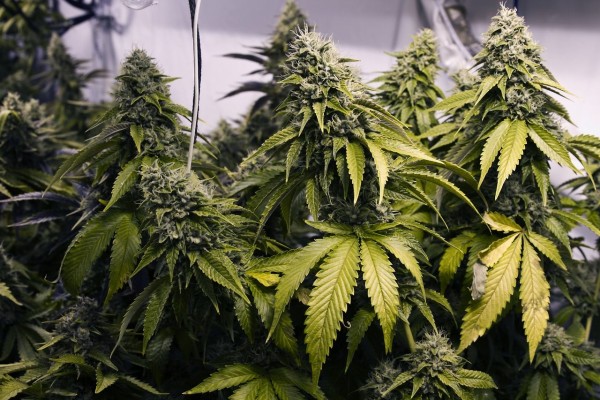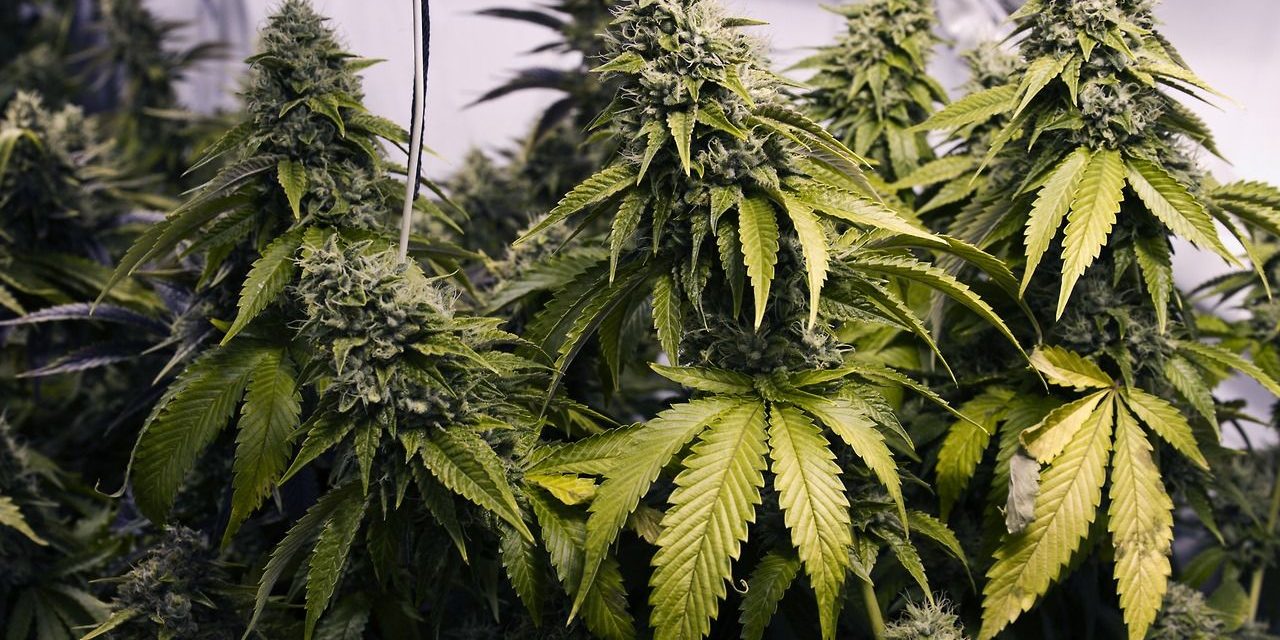
Foria Relief is a new cannabis suppository dedicated to menstrual pain SOPHIE
As I continue to ascend through my 20s, I’ve become increasingly concerned with what I put in my body. I don’t know if it’s growing up, increasing knowledge, or an unconscious attempt to create the perfect incubation chamber for hypothetical babies. I swore off box hair dye after reading about the toxins, I’ve exchanged acrylic nails for DIY safer and cruelty-free nail polishes like Deborah Lippmann, and I even switched out drug store tampons for Etsy-purchased reusable menstrual pads.
The first — and only — cannabis suppository on the market dedicated to treating menstrual cramps, Foria Relief officially launched January 25th. You might know Foria from Foria Pleasure, the cannabis sensation enhancement oil (I tried this as well and can recommend it, vividly). With the launch of vaginal suppositories created to relieve menstrual cramps, Foria’s claiming their throne as the queen of all vagina-related cannabis needs.
The suppository capsules are made with just three natural ingredients: organic cocoa butter, CO2 extracted cannabis oil, and CBD isolate. According to doctors, this is news worth celebrating. “We know that cannabis does help pain. We do see a lot of patients with dysmenorrhea. Dysmenorrhea is painful menstrual periods. It’s a fantastic modality to help patients,” said Morton Barke, MD. Barke is a retired gynecologist with nearly 50 years of experience who is currently working as the medical director of a Venice, CA medical marijuana evaluation center.
Whether you’re using the Foria Relief for dysmenorrhea, run of the mill cramps, or mid-cycle discomfort, it works the same way: by activating your body’s cannabinoid receptors in the pelvic region. Foria Relief is safe to use with tampons, and is created in a mid-range of average vaginal pH as to not disrupt your balance. It takes about 15 to 30 minutes to kick in, and you can expect some light discharge (although I barely noticed any on my Etsy panty liners).
Period cramps are caused by uterine cramps triggered by pain and inflammation associated with your period. The suppositories contain both CBD (or Cannabidiol) and THC (aka Tetrahydrocannabinol) — the two big weed acronyms you need to know.
“We know that cannabis does help pain,” says Morton Barke, MD.
Tim Drennan, Foria’s Director or Product Development and “resident scientist,” explains how THC and CBD help with cramping: “If you view pain as frequencies, as a huge jagged piece like you’re looking at a radio signal, if you look at pleasure or baseline stimulation, it’s a long, nice, flowing, gentle wave,” Drennan says, “What THC does on the nerve terminal, is it modulates out the high frequency signals. It doesn’t allow the high frequency signals to go through. That’s how it is able to modulate pain and still not produce sensation or reduce nerve control. Whereas an opiate just blocks it.” Inflammation can also cause pain. According to Drennan, the CBD “reduces inflammation through your immune system actually, the cells that control inflammation.”
As marijuana continues to conquer America, it’s important to understand the differences between the cannabinoids CBD and THC. “The pharmacology of them is completely different. And THC is psychoactive. CBD is non-psychoactive,” says Drennan. In states where cannabis is legal, you can even purchase CBD pills, and experience the pain-relieving, cancer-fighting, anti-inflammatory, and anxiety-reducing properties of CBD. CBD also works to counteract some of the less desirable effects of THC — that too stoned, paranoid, jittery feeling.
As you learn about the chemical structure of different strains, understanding the difference between CBD and THC and the levels found in various strains can make it easier to choose what you’re looking for. In states where weed is legal, patients have the luxury of medical marijuana doctors and budtenders at dispensaries to help them select what’s the best strain for them. Each serving of Foria Relief contains 60mg of THC and 10mg of CBD.
While most women do not experience a “high,” results may vary, so plan your day accordingly.
“These are women [who] would not necessarily want to get high, so they could get a vaginal suppository high in CBD.” said Barke. The insert that came with the tin box of Foria Relief (perfect for stashing nugs after you’ve used them all) suggested that while most women do not experience a “high,” results may vary, so plan your day accordingly.
The first day I took Foria, despite experiencing cramps all day long, I waited until I had filed all my articles and was done with work. Then, I lay on the floor with my head on a pillow, pulled down my pants, and inserted a suppository — a faint green color, like little alien eggs — up my vagina. In the next room my boyfriend cooked dinner.
I put on some relaxing instrumental music and chilled out for the 20 minutes suggested in the Foria pamphlet, letting the cannabis do its work. Not only did my cramps ease up, but I felt good. Really good. There was no heady high, but I felt serene. It was like if Ativan made a baby with Tylenol, except I hadn’t thrust any nasty pharmaceuticals into my vag; just cannabis and cocoa butter.
The next day my period ravaged on and, having my own anecdotal results that the suppository wouldn’t totally fuck up my day, I tried it earlier on. Except this time, I skipped the meditation and mood music, tapping away at my keyboard, creating checklists and brainstorming pitches as the cannabis did its magic.
The suppositories are a faint green color, like little alien eggs.
My cramps lightened, but without the chilled out exterior vibes, I felt none of the same calm and light high that had mellowed me out the previous evening. I asked Drennan why this might have happened.
“Whenever someone first takes something, they’re going to be looking harder for the effects. So a good bit of it very well could be psychological,” said Drennan. “Depending on your environment, your appetite, your stress level, even smoking psychoactive products — you’ll be high in different ways.” Totally. Being stoned in bed, making out with bae as Brian Eno plays is a vastly different experience than being blazed and stuck on a crowded subway.
The reason Foria doesn’t get you stoned (just your vagina) is the method of consumption. In layman’s terms, the reason for this is that the form of THC that gets you stoned — called delta 9 THC — isn’t absorbed the same way as when it’s inhaled or ingested. “When you do it vaginally or rectally, delta 9 THC is not technically getting absorbed. Delta 9 is too big to be absorbed,” Brennan says, “So when it’s absorbed [in your vagina] it does have the same properties of THC, but it’s non-psychoactive. So some people have experienced a mild psychoactivity, maybe creative thought or you know, [feeling like] ‘My mind was very open to things,’ but not traditional psychotropic effects like light headedness, and heavy eyes.”
The reason Foria doesn’t get you stoned (just your vagina) is the method of consumption.
Despite the lack of psychotropic activity, you do absorb more of the medicine using a suppository, making it so much more effective for treating menstrual pain than a regular joint. “When you take a suppository, vaginally or rectally, the bioavailability is higher. Bioavailability is a term – [that means] your body’s access to the medicine. So when you smoke it’s rather low. Most of it gets burned off, one. Then when it’s absorbed through your lungs it goes through the liver. And in your liver, it’s called first pass metabolism. Your liver takes away most of the efficacy of the product.” And yes — men (and everyone else) can experience this too by putting cannabis suppositories up their butt.
My favorite thing about Foria Relief, is my favorite thing about cannabis in general: it’s just so safe. In addition, Foria uses only cannabis grown in Northern California without the use of harmful pesticides. Advil and Tylenol are very low risk, but opiate pain killers come with a plethora of red flags. “Normally women go to their gynecologist and they’re told to take Advil or Tylenol. They try to avoid using opiates because if they give them oxycodone or Vicodin it’s going to take the pain away, but those are products that are addictive,” said Dr. Barke. “As far as safety, there’s the obvious. Marijuana has never killed anybody as far as a chemical overdose,” adds Drennan.
Foria is currently available in Colorado, where cannabis is legal for both recreational and medicinal purposes, and California, where it’s legal for medical purposes. “I always feel a doctor should be involved,” said Dr. Barke “In general, we talk to patients about what kind of marijuana to use: sativa, indica. THC. CBD. Just these kind of things, because it’s our responsibility to let patients know whatever their ailment is, what kind of marijuana they should be using. I think the vaginal suppository is a super idea,” he added.
Looking into my imaginary crystal ball, I predict this is the first, but certainly not the last time, we’ll see cannabis being used medically to make women’s lives a little less painful.
Read More
http://www.racked.com/2016/1/27/10834874/weed-vagina-period-menstrual-cramps-cannabis-foria











Sign up on lukeunfiltered.com or to check out our store on thebestpoliticalshirts.com.